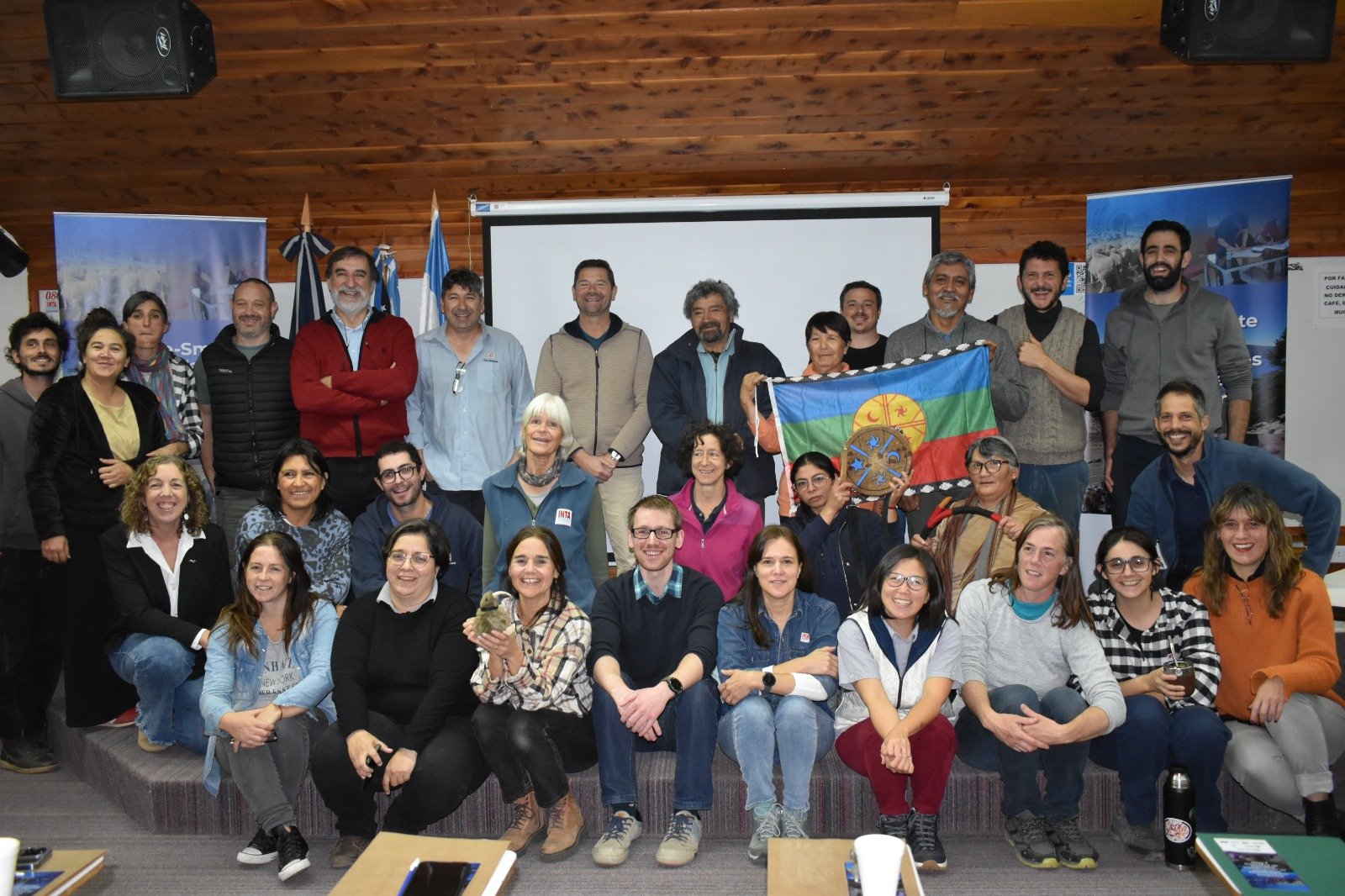Progress on Enabling Indigenous Climate Smart Agriculture in Patagonia
Representatives from New Zealand’s Latin America and the Caribbean (LAC) Climate Smart Agriculture (CSA) initiative took part in project workshops recently with Indigenous Mapuche communities in regions along the border between Argentina and Chile.
New Zealand is supporting a project to improve the sustainability and food security of indigenous smallholder communities and their agricultural systems in Argentina and Chile.
The workshops provided an opportunity for leaders from Mapuche communities across the region to meet with researchers from INTA Argentina and INIA Chile to discuss food security challenges, as well as opportunities for increased production, biodiversity protection, and how Indigenous knowledge combined with modern farming systems can enhance prosperity in the region.
Leaders from across the Mapuche communities meet with INTA Argentina and representatives from New Zealand’s Latin America and the Caribbean Climate Smart Agriculture initiative.
The meeting also served as an opportunity for the representatives from the LAC: CSA initiative to meet with project staff from INTA Argentina and INIA Chile to confirm the project’s key objectives, implementation plans and timelines.
The Regional Director, the Director of the Bariloche Experimental Station of INTA Argentina, and the Vice President of CONICET, together with representatives from New Zealand’s Latin America and the Caribbean Climate Smart Agriculture initiative.
Background
The objective of this project is to promote sustainability and food security in Indigenous Mapuche communities in rural areas of Argentina and Chile. Through the implementation of climate-smart livestock practices, the aim is to improve livestock production on small farms in these regions without increasing greenhouse gas emissions.
The project is funded through the New Zealand Government’s Climate Smart Agriculture Initiative, as part of its contribution to the Global Research Alliance on Agricultural Greenhouse Gases (GRA). New Zealand is supporting INTA Argentina and INIA Chile to support the integration of modern climate smart agriculture practices with Indigenous knowledge in the provinces of Río Negro and Neuquén, where Mapuche communities face challenges due to low water availability, poor nutrition for livestock, and limited access to local markets. In Chile, the focus is on the La Araucanía region, where Mapuche communities also face changing climate conditions and limitations on livestock raising.
Representatives from the LAC:CSA initiative also had the opportunity to visit the INTA experimental field in Pilcaniyeu, where trials are being conducted to improve the resilience of livestock systems in the region and raise animals with better adaptation. They also held a technical meeting at the INTA Bariloche Experimental Station, where the research lines of the different research teams related to climate-smart livestock farming and greenhouse gas (GHG) emissions reduction were presented.
Creole Goats and Angora Goats raised at the INTA experimental field in Pilcaniyeu, Argeniina, under a genetic improvement programme aimed at increasing production and enhancing adaptation to climate change without increasing greenhouse gas emissions.
INTA research team, representatives from LAC:CSA, and a representative from the Mapuche community leading a small-scale climate-smart production demonstration unit at the INTA experimental field in Pilcaniyeu.
Mapuche community leaders, with INTA Argentina, INIA Chile and New Zealand’s LAC CSA initiative representatives during the technical meeting at the INTA Bariloche Experimental Station, Argentina, where climate-smart livestock farming and GHG emissions reduction.
View of the Mapuche community in Chile, where climate-smart livestock farming and sustainable tourism are key opportunities being explored under the project






